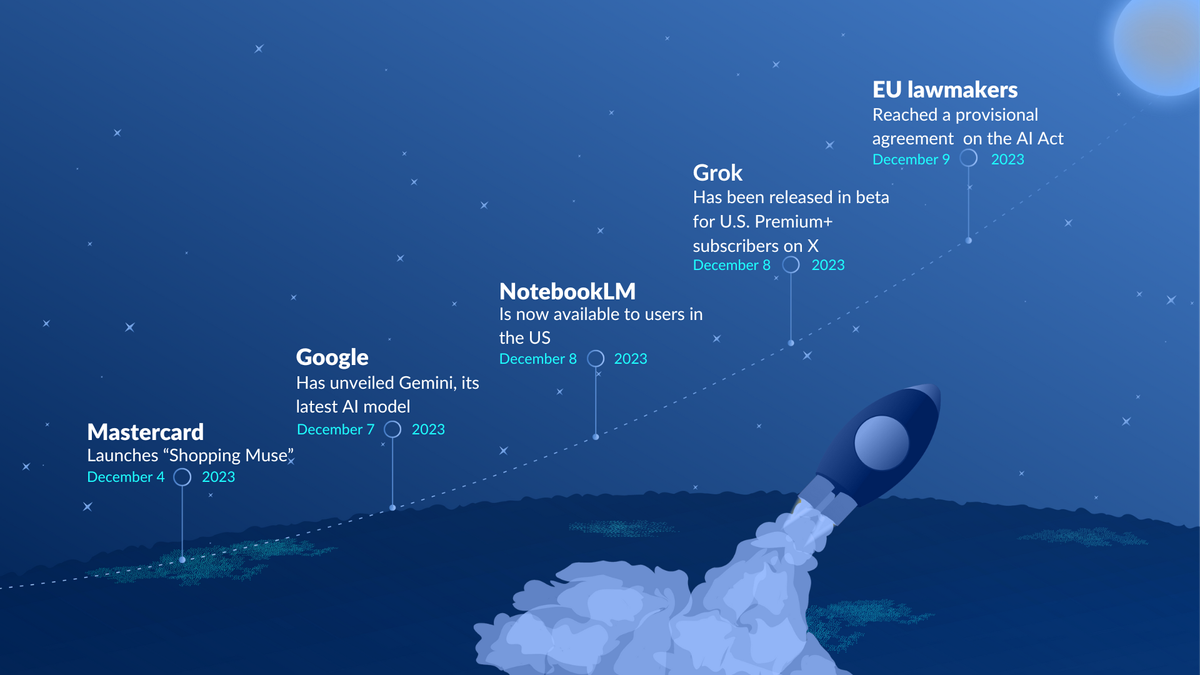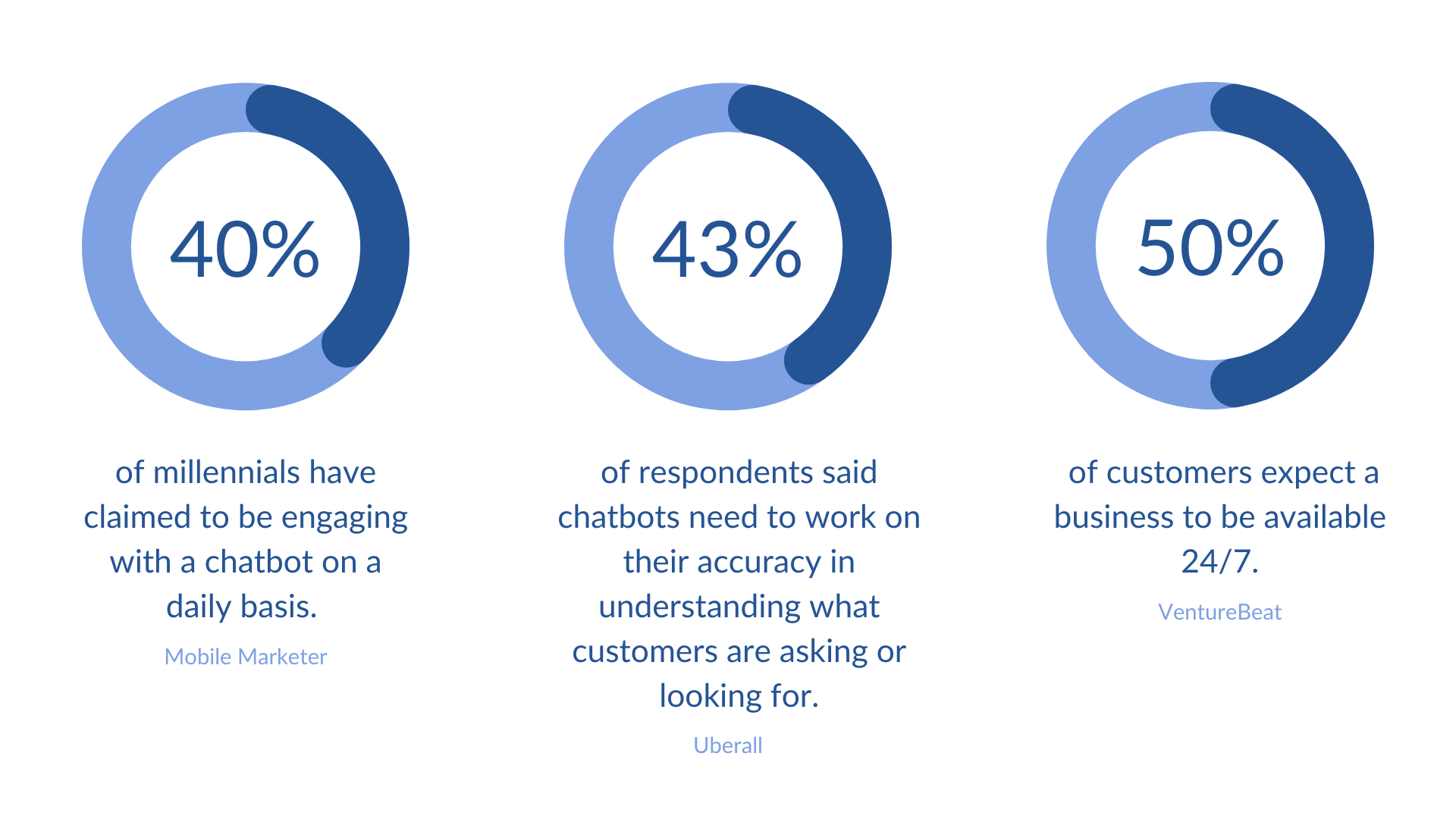Powered by Data - December 11, 2023
Keep up-to-date on conversational AI & chatbots with fascinating data points and weekly news.

Data Points

Last Week in Conversational AI
- Google has unveiled Gemini, its latest AI model, described as a multimodal system capable of understanding and combining various types of information, including text, code, audio, image, and video. It comes in three versions: Ultra, Pro, and Nano, with Ultra surpassing human experts in language understanding. Gemini is native multimodal, eliminating the need for separate components for different data types. It undergoes rigorous safety evaluations, and Google plans to integrate it into various products, including Search, Ads, Chrome, and Duet AI. Developers can access Gemini Pro via the Gemini API, while Android developers can use Gemini Nano via AICore in Android 14.
Read More - Mastercard has introduced an AI-powered shopping assistant called "Shopping Muse," designed to offer users personalized product recommendations. The tool utilizes colloquial language to generate tailored product suggestions and understand trends and phrases. It leverages context, user behavior, and real-time preferences to provide recommendations. Shopping Muse can also use image recognition tools to suggest products based on visual similarities. While fashion is the initial use case, Mastercard envisions extending the technology to other categories like furniture and groceries. The tool is powered by Dynamic Yield, a personalization company acquired by Mastercard in April 2022.
Read More - Google's experimental AI-powered note-taking app, NotebookLM, is now available to users in the US. The app is gaining new features, including the use of Google's Gemini Pro AI model to assist with document understanding and reasoning. NotebookLM can summarize imported documents, generate key points, and answer questions about notes. With the latest update, users can transform their notes into various document formats, such as outlines or study guides. The app will also suggest actions based on user activities, such as offering tools to refine prose or suggesting related ideas. Users can now include up to 20 sources in a notebook, each with up to 200,000 words.
Read More - European Union lawmakers have reached a political deal on a risk-based framework for regulating artificial intelligence. The agreement includes a total prohibition on the use of AI for certain applications, such as biometric categorization systems using sensitive characteristics, untargeted scraping of facial images for facial recognition databases, emotion recognition in workplaces and educational institutions, social scoring based on behavior or personal characteristics, and AI systems manipulating human behavior to circumvent free will. The deal also covers regulations for "high-risk" AI and general-purpose AI systems. The EU AI Act is expected to be in full force by 2026.
Read More - Elon Musk has released Grok on X for Premium+ subscribers in the US. Musk stated that every English language X Premium+ subscriber would have access to Grok in the next week, with Japanese users following in early 2024. Grok is designed to reject questions it won't answer with sarcasm, differentiating it from other chatbots like ChatGPT. It claims to provide real-time knowledge of current events using X posts, relying on its large language model, Grok-1, with 63 billion parameters. Musk's xAI plans include large-scale language model training, utilizing GPUs, and leveraging Twitter data.
Read More
